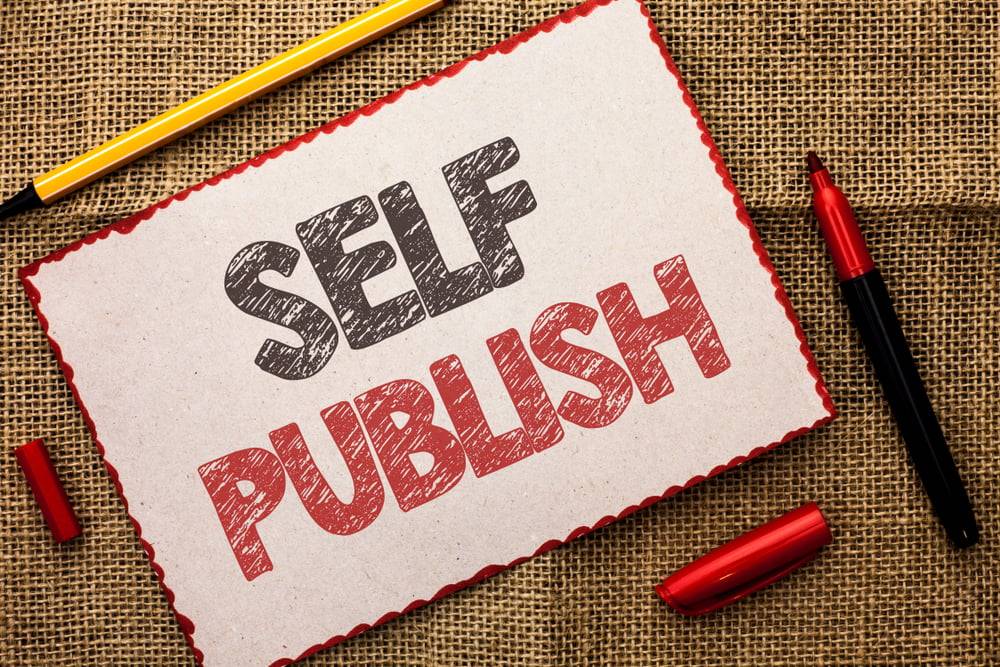So you have finally completed the manuscript, edited and re-edited it, revised and redrafted it, and are ready to get your book published. Good job.
Now you are sending it to various publishers but no one seems interested. Some of them bluntly sent you rejection slips while some others didn't even bother to reply.
So you begin to question yourself as a writer: Is this really what God sent me to do? Et cetera.
Before you abandon your manuscript, and all hopes of becoming an author with it, be aware you can publish the book yourself.
Self-publishing is nothing new. It has been masquerading all along with traditional publishing under the guise of "vanity publishing".
Usually an author rejected by traditional publishers went with vanity publishers. The author paid these presses to print lots of copies of his work which he then sold on his own.
No doubt he took a risk. Without contacts with bookshops and marketing skills the books would never sell.
Reasons like these made vanity publishing carry a stigma with it.
However, the Internet is changing that. Though self-publishing is still not as respected as traditional publishing, some experts think it's only a matter of time before perceptions shift.
With e-books and online retailers, things for the self-published author have changed for good.
Let's see how.
1) It's Fast
If you submit your manuscript to a traditional publisher and even if everything goes fine, it will take at least an year before your book reaches the bookstores. And the e-book version will appear only after the print version.
Enter print on demand.
Print on demand (POD) is a book distribution method which prints books only in response to orders. Companies like CreateSpace and Lulu can have the print form ready within a few weeks.
E-books take even less time. They can be published almost immediately.
Amazon claims they'll publish your book within 24-48 hrs.
In fact in my case it was even less.
When I uploaded my e-book Concision: A No-Grammar Guide to Good Writing on Amazon I was told to check after 12 hrs. However, out of curiosity I checked after five hours and the book was available. What a feeling it was!
2) It's Profitable
Traditional publishers usually pay authors 10 to 15 per cent of the list price. However, you can make much more if you self-publish.
Amazon pays 35 or 70 per cent in royalties depending on the plan you choose.
Apple too pays 70 per cent.
Barnes and Noble pays 40 or 65 per cent depending on your plan.
In fact, if you have a large audience you can sell your book directly from your website and keep the entire 100 per cent.
Some claim since traditional publishers will get your book out in the bookstores, it will compensate for the low royalties.
I doubt that and so does J. A. Konrath:
But, in my humble opinion, a dedicated writer who turns out good material on a consistent basis will be able to, on average, earn more money self-publishing than traditional publishing. I say this having done both.
3) It's Easy to Fix Errors
If a mistake creeps in or if you simply want to rewrite a passage in a traditionally published book, you will have to wait until the publisher has sold off the current inventory. That may take months.
It's very easy to fix an error in an e-book. Just edit the file on your computer and upload it on the website. The new file will replace the old file within a few hours.
The print version of a self-published book can be edited easily too because of print on demand.
Making changes to a POD book is similar as altering an e-book. Upload the edited manuscript on the POD website and follow their guidelines. The new print version will be available within a few weeks.
4) It Gives You More Control
If you're not someone like J. K. Rowling you won't control much of the contents of your book.
Now I'm not well versed with traditional publishing but Michael Hyatt is and here's what he said:
And the truth is, I shouldn't say this either, but as a publisher, most books are full of padding, you know, to justify the retail price that you're asking. I can't believe I just said that, but that's really true.
Also, the editors at the publishing house may ask you to make significant changes to the book; you won't usually decide the title; and you will have little, if any, say on the cover design.
Some justify this by saying a traditionally published book means team work and so of course you'll lose some control. However, if you're one of those control freaks, choose self-publishing.
In self-publishing you control everything. Period. Exclamation mark.
It's not my intention to portray publishing houses as some viciously evil entities. I do believe they have their advantages.
But I also believe an author today must be aware of his options. That is all.




No comments yet
Be the first to share your thoughts!